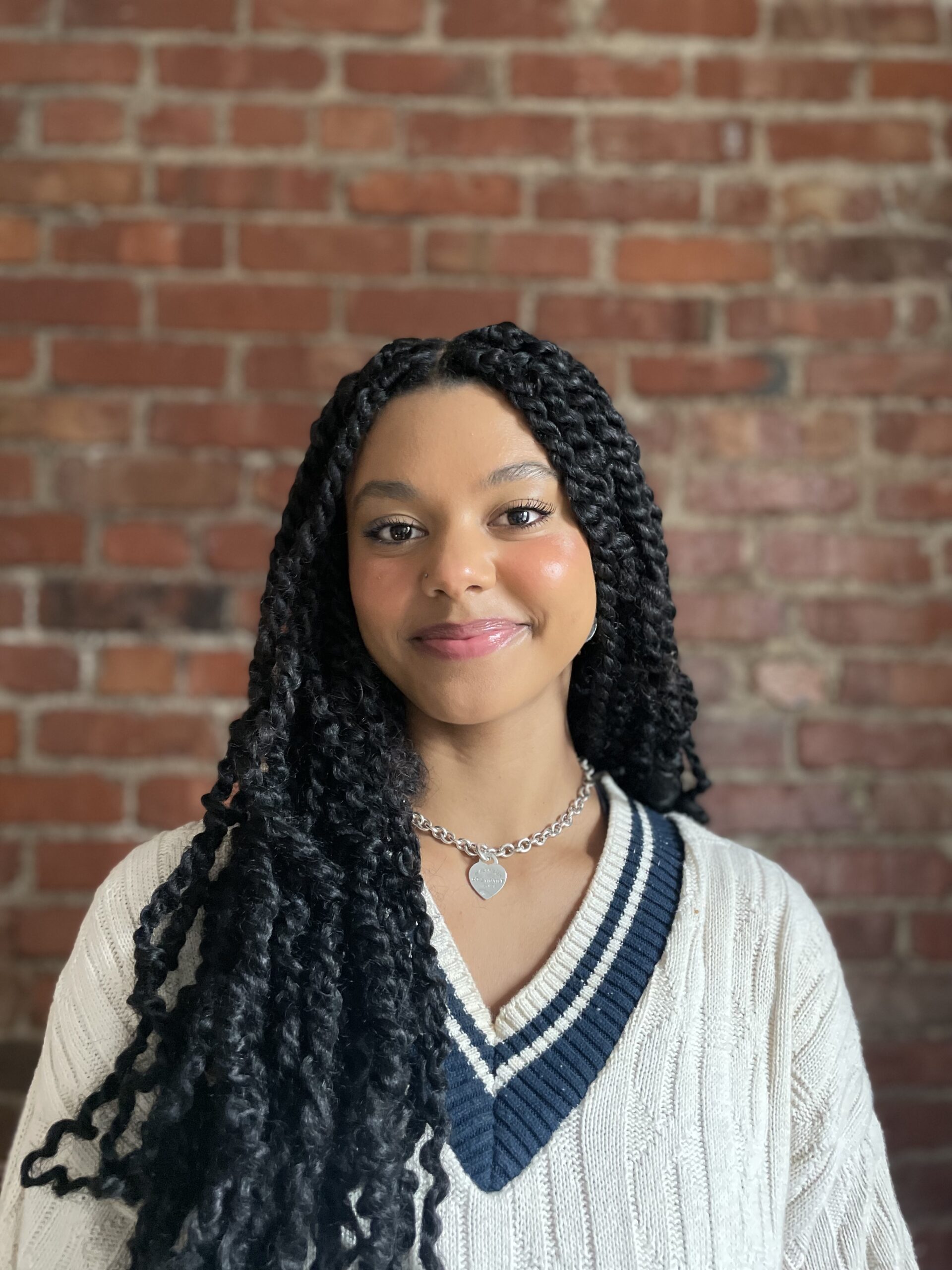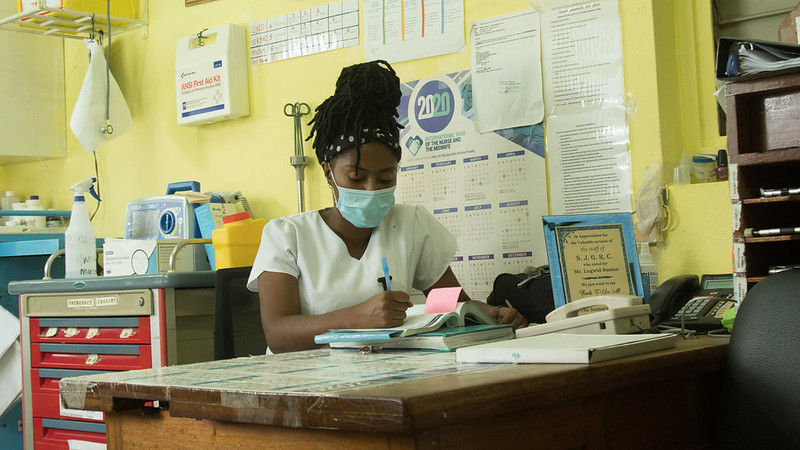Globally, over 1.8 billion individuals experience menstruation every month. The average menstruator spends 2,535 days of their life menstruating. Although menstruation is a natural process, many menstruators around the world face social, economic, and institutional barriers to adequate menstrual hygiene management (MHM). MHM is defined by the World Health Organization (WHO) and United Nations International Children’s Emergency Fund (UNICEF) as the use of “clean menstrual management material to absorb or collect menstrual blood, that can be changed in privacy as often as necessary, using soap and water for washing the body as required, and having access to safe and convenient facilities to dispose of used menstrual management materials”. WHO and UNICEF further emphasize the importance of adequate education about menstruation, in order to break down social and societal taboos.
Despite the fact that over one quarter of the population experiences menstruation every month, period poverty remains an ongoing global issue, with physical, mental, and emotional effects. Period poverty refers to an inability to access menstrual products, hygiene facilities, waste management, and education regarding menstruation and is expressed in a variety of forms, including access related, affordability related, embarrassment or fear of embarrassment, and culturally related alienation. Period poverty is a particularly prominent issue in Jamaica, where climate change, the COVID-19 pandemic, and economic instability, have exacerbated pre-existing problems with water scarcity and healthcare.
A 2018 survey by the HerFlow Foundation found that 44 percent of Jamaican girls and women are affected by period poverty. With the inability to access menstrual products, 20 percent of girls stay home from school during their periods, and 13 percent use alternative materials for menstrual management such as old fabric or tissues, or reuse old pads. Not only does period poverty implicate the education of these girls due to absences, but using improper menstrual materials can be extremely dangerous both physically and psychologically, and can cause serious reproductive issues and infections such as urinary tract infections (UTIs). The added health risks stemming from improper menstraution management increase the strain on Jamaica’s already-inadequate healthcare system.
Proper MHM requires a plentiful supply of clean water, something Jamaica has been increasingly struggling with as living conditions continue to worsen due to climate change. Of its many effects, there is a distinct lack of consideration around the impacts of climate change on women’s rights, health, and livelihoods, particularly in regard to menstrual health. Climate change-related events such as drought and shifting rainfall patterns can and have led to serious water scarcity patterns in Jamaica. Many Jamaican households face indefinite water restrictions, as dam and water reserves frequently run worryingly-low, with Senator Matthew Samuda from the Ministry of Economic Growth and Job Creation stating in May 2023 that the current dry period had been cumulatively drier than any other time in Jamaica’s recorded history. Moreover, in August, Prime Minister Andrew Holness stated that the current drought conditions had a 40 percent chance of continuing until the end of the year. This will continue to exacerbate the enormous amount of pressure that Jamaican water reserves are facing.The water scarcity crisis in Jamaica is projected to get worse in coming years, as it continues to be affected by a number of climate change-induced extreme weather events. This includes floods, cyclones, heat waves, and droughts, irregular and destructive rain patterns, rising sea levels introducing salt water to groundwater resources, and the reduction of available fresh water.
Access to water in Jamaica is intimately tied to power, inequality, and poverty, as 30 percent of the poorest households rely on untreated water from sources such as rivers and another third rely on standpipes. Further exacerbating the power issue, Jamaica’s poorest households spend an estimated 3.2 percent of their income on obtaining water, compared to only 1.8 percent for the richest households. Access to clean water is an integral part of maintaining individual health, particularly in regard to menstruation. When getting access to clean water is such a stringent task, its use tends to be prioritized for drinking, cooking, and basic cleanliness such as showering, not for menstruation issues.
Another major issue contributing to period poverty in Jamaica is the less-than-adequate water, sanitation, and hygiene (WASH) systems. More specifically, WASH refers to the provision of water, sanitation, healthcare waste management, hygiene, and environmental cleaning infrastructure and services. A lack of proper WASH facilities heightens period poverty, as women and girls are prevented from being able to exercise proper hygiene. Often, the planning and construction of WASH systems do not take into account menstrual health, as a result of the general lack of awareness and education about women’s health in civil society, the government, and private sectors. In 2018, the United Nations Secretary General launched a global call to action on WASH, specifically health care facilities, stating that the “availability of WASH services supports core universal health care aspects of quality, equity, and dignity for all people”. Improving WASH facilities, then, will not only afford menstruators the opportunity and resources to take proper care of their own health, but in doing so will reaffirm their personal dignity.
According to the World Bank, “to effectively manage menstruation, girls and women require access to WASH facilities, affordable and appropriate menstrual hygiene materials, information on good practices, and a supportive environment where they can manage menstruation without embarrassment or stigma”. In order to achieve this in Jamaica there must be a multi-sectoral approach taken to addressing period poverty. This should prioritize improving WASH systems, menstrual education, hygienic health practices, gender equality, and employment opportunities.
Education
A survey done by Always found that 96 percent of girls in Jamaica believe that menstrual education should be delivered in schools. Schools that invest in menstrual-friendly facilities and include menstrual education into school-wide curriculum can help reduce stigma and improve education and health outcomes for all.
Health Practices
Providing access to safe and sanitary menstrual materials decreases risk of infection and can have cascading effects on overall sexual and reproductive health, including reducing teen pregnancy and improving maternal outcomes and fertility. Moreover, a study done by Philips-Howard et al., in 2016 found that providing girls with sanitary pads leads to a significant reduction in sexually transmitted infections as well as reproductive tract infections. Supplying proper menstrual materials, therefore, prevents a range of adverse health effects for menstruators, which can help ease the strain on healthcare systems.
Gender Equality
Improving menstrual health and hygiene is an important part of promoting gender equality, as it helps to strengthen women’s dignity, privacy, bodily integrity, and self efficacy. Studies have shown that menstrual stigma reinforces misogynistic stereotypes that women are irrational or overly emotional, which ties into the bullying and teasing of young girls on the basis of menstruation while in school. Building public awareness of MHM aids in the establishment of an environment of non-discrimination, in which women’s voices are uplifted, girls have ample choice in deciding their futures, and women are facilitated in becoming leaders and managers. This includes eliminating discriminatory social norms, cultural taboos, and stigmas that push women towards unsafe or undesirable choices, including the use of non-traditional materials for menstrual care, such as toilet paper or old fabric.
Employment
Period poverty also has severe consequences for womens employment opportunities. Improving access to affordable menstrual hygiene materials, particularly in schools, can help improve access to education, which opens the door to more job opportunities, promotions, and even entrepreneurship. Without this, girls often skip days of school which may lead to them dropping out. Girls who leave school tend to have limited employment opportunities, and often end up marrying early and entering motherhood. Investing in female-friendly sanitation facilities in workplaces prevents women from missing days of work for their periods, which often results in them being seen as unreliable and stunting their ability to advance.
Reducing period poverty in Jamaica requires a multi-dimensional, intersectional lens that works to address both the root causes and the consequences, while simultaneously improving the lives of the millions of women suffering from a lack of proper MHM right now.
Edited by Mayah Esmail

Liliana Mason is in her fourth and final year at McGill University, currently pursuing a B.A. in Political Science with a double minor in African Studies and Canadian Studies. She is particularly interested in African politics, the African diaspora, and the effects of climate change on human migration.

